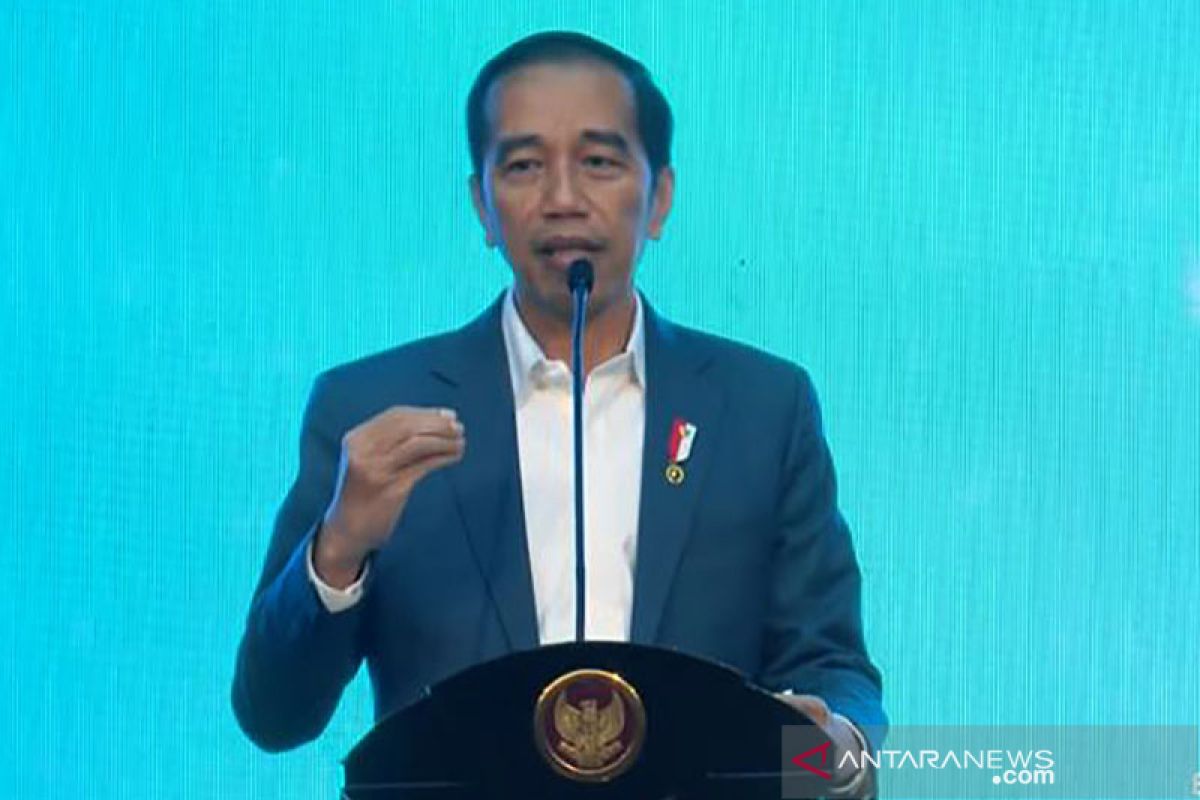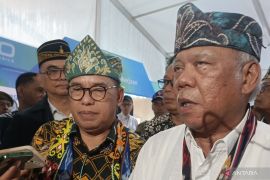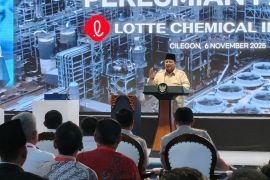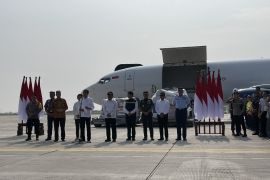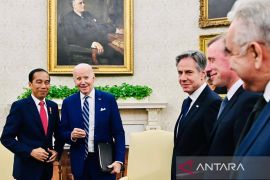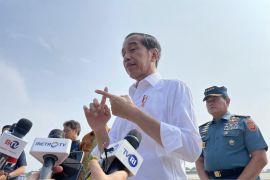This is a power that we often do not realize. I have to remind you all the time, including our position in world trade routes. We have to keep this strength in mind in order to build a grand strategy for state business, a grand strategy for the countJakarta (ANTARA) - President Joko Widodo (Jokowi) is encouraging the development of a system to build foreign dependence on Indonesia's products.
"We must be able to create a design to make other countries depend on us," the president noted in his remarks at the 2022 Kompas100 CEO Forum in Jakarta, Friday.
The head of state urged the country to be optimistic since it has abundant potential and strength, both from natural and human resources.
"Later, we will experience a demographic bonus in 2030. We will have around 201 million productive workers," he remarked.
Moreover, he noted that Indonesia has a huge market for domestic and the ASEAN region that has reached 600 million people.
"This is a power that we often do not realize. I have to remind you all the time, including our position in world trade routes. We have to keep this strength in mind in order to build a grand strategy for state business, a grand strategy for the country's economy to achieve our goals," Jokowi emphasized.
Related news: Regional heads should be heedful of inflation: President
Regarding the plan to build foreign dependence on Indonesia's products, he spoke of having repeatedly checked which countries depended on Indonesia.
"When we stopped our coal export for two weeks, many countries called me immediately. They said they really depended on us. I am quite surprised," he remarked.
Apart from coal, Jokowi stated that many countries also depended on Indonesia's crude palm oil (CPO). Once the country stopped exporting CPO, various parties, including the World Bank and International Monetary Fund (IMF), would start asking questions.
Related news: North Maluku should maintain regional economic growth: Jokowi
"Why we stopped exporting CPO? (It is) because I have to put my people first. I cannot give to other countries. Many people blamed us for that, but it does not matter. I prioritize the need of my people," he emphasized.
He noted that the decision resulted in the stability of cooking oil prices. In the two markets that he visited recently, the price of cooking oil was still at Rp14 thousand, and some were below that price.
The president also emphasized that Indonesia must not only become a branch in terms of investment and import destinations but should also be able to design an economic ecosystem to build foreign countries' dependence.
He saw several Latin American countries that have mistakenly capitalized on the momentum. Their countries had become branches, not the main investment destination, and are unable to produce products that other countries depend on.
Jokowi urged all parties to follow the example of Taiwan and South Korea that were able to focus to produce high dependent products.
"Taiwan was able to produce chips. It is strategic and competitive. They only produced chips, and every country depended on them. It is only one product, and we have not seen the rest," he pointed out.
Related news: Nusantara Student Dormitory focuses on increasing brotherhood: Jokowi
The same was also the case with South Korea, wherein the country was able to produce digital components that big companies in the United States depended on, Jokowi remarked.
Jokowi emphasized that Indonesia should be able to do the same since the country has abundant nickel, copper, bauxite, and tin reserves. For instance, Indonesia can produce electric vehicle batteries to build other countries' dependence on it.
"We must pursue this target. Some 60 percent of electric cars and electric vehicles will depend on our EV Battery. The number is the market share in the world. We can utilize the number as our strength," he affirmed.
Related news: Cognizance of issues during election preparations important: President
Related news: President Jokowi distributes 1.5 million land certificates for people
Translator: Rangga Pandu A J, Resinta S
Editor: Fardah Assegaf
Copyright © ANTARA 2022
